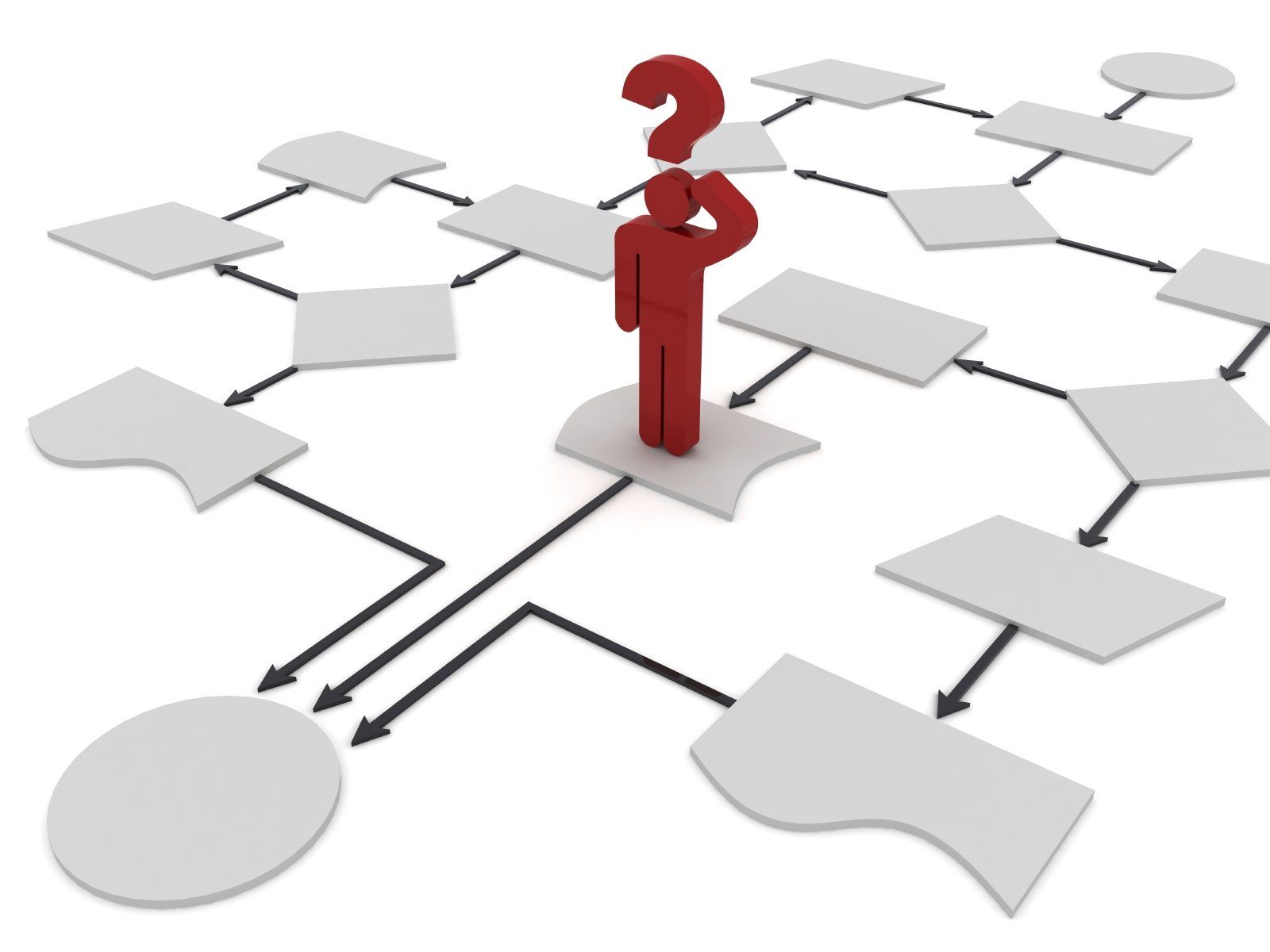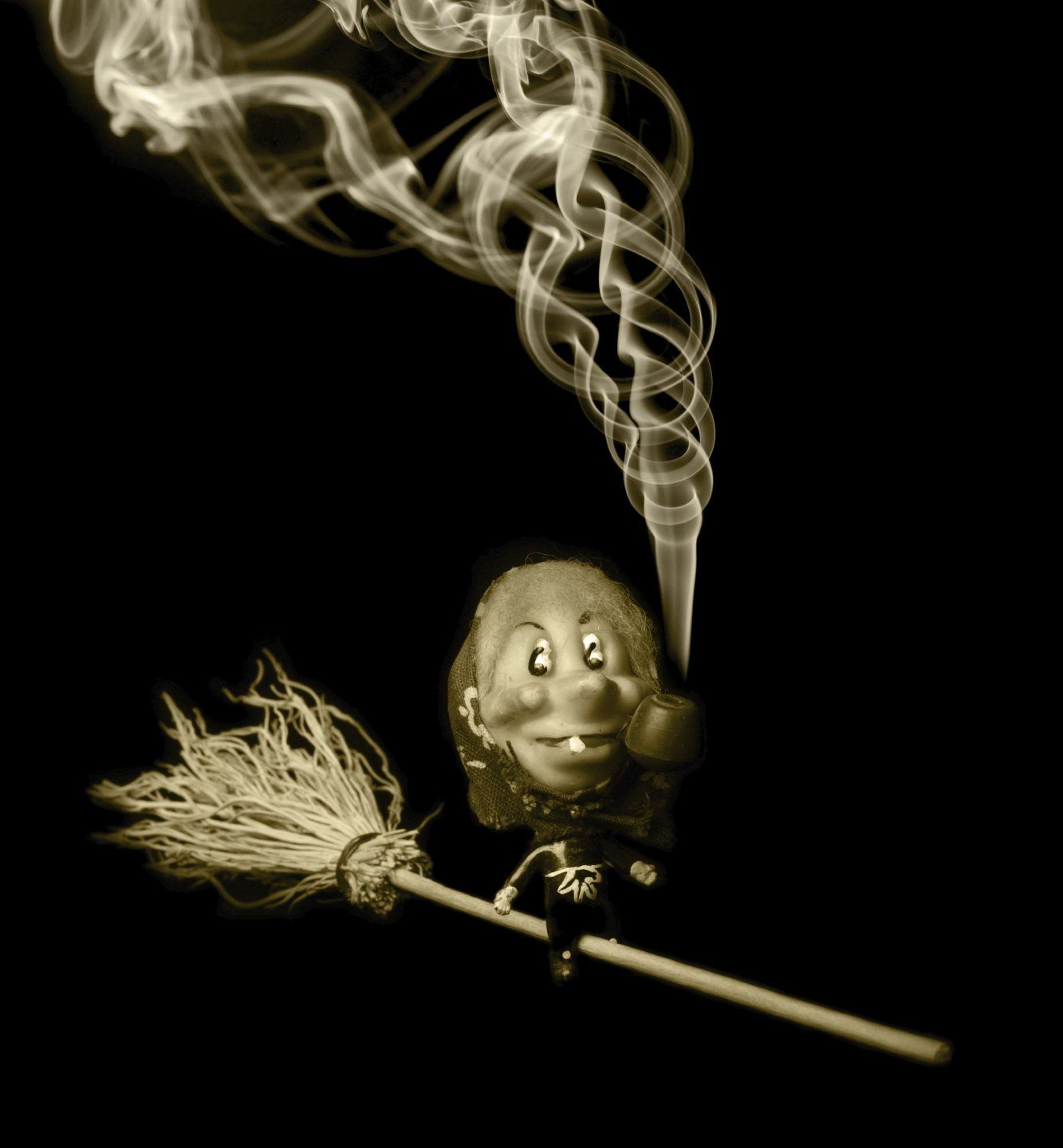How To Leave A Narcissist And Stay 'Gone'.
Supriya McKenna
How to leave a narcissist and 'stay gone' - Dr Supriya McKenna explains

"It is widely quoted that it takes an average of seven attempts to leave an abusive relationship."
Narcissistic relationships usually begin with covert emotional abuse (perhaps just mild criticisms to start with) which slowly ramp up as the recipient grows accustomed to it. As time goes on put downs, invalidation, gas-lighting and all the many other behaviours typical of narcissistic abuse can become quite pronounced.
Physical abuse may also be a feature of a narcissistic relationship, but this is far from always the case. So why does it take so long to finally leave?
Well, there are lots of reasons.
The cycle of 'idealise/devalue'
In this phase they generally act as if nothing is wrong, and as if the previous behaviour never happened, as they re-idealise you and your relationship. Suddenly you are flavour of the month again, and can do no wrong. You are relieved to be back in their good books, and bask in the glory of their apparent ‘love’. You make excuses for their previous behaviour, either taking the blame for it yourself, denying to yourself that it ever happened, justifying in your mind why it happened (they were tired, stressed etc), or minimising the impact it had on you, perhaps telling yourself that it wasn’t that bad. All is well - for now.
However, the devaluation phase is never far away, and these alternating cycles will repeat ad infinitum. The cycles will be of varying length (sometimes lasting hours, sometimes months), and the devaluing behaviours are of varying size. All of this keeps you confused, on your best behaviour and on high alert. Tiptoeing around their fragile ego and walking on eggshells becomes the norm, and you daren’t be critical of them, or try to assert your needs and wants, in case the behaviour starts again. Eventually, you don’t even feel you can express your normal human feelings of pain or sadness without a narcissistic partner taking it as a personal slight against themselves.
Hoovering
Most people will consider leaving during one of the many devaluation phases they experience, and may even tell the narcissist of their intention. And this is when the narcissist will pull out all the stops to get you back. This type of idealisation, which is specific to imminent abandonment, is called ‘hoovering’. It’s just as it sounds - a way to suck you back into the relationship so that you don’t leave.
"Narcissists struggle with being abandoned even more than most ordinary people, and they will do anything to avoid it."
In hoovering the narcissist will employ a variety of tactics to get you back, depending on what works most effectively on you. Here a few possibilities:
- If you are a ‘rescuer’, or a highly empathic individual, someone who believes in giving endless chances, or someone who believes that ‘love conquers all’, you will be subjected to the ‘pity play.’ Here the narcissist will tell you how difficult their life has been. There may be tears. Suggestions of depression and suicidal thoughts. They might tell you how stressed they are. How hard they are working. How their family or friends are treating them badly. How worried they are about their health. How much physical or mental pain they are in. How only you can help them. Your natural empathy will kick in, and, feeling guilty, you will rush back to save the narcissist, resolving to be more understanding/more forgiving/more self aware/ kinder etc. The narcissist will be profoundly grateful, you will be relieved and the high drama will be over. You may believe that your relationship is healed, and stronger than ever. Unfortunately, with a narcissist, this is not likely to be true.
- Guilt tripping is another common ploy that will be used against you, especially if you have children with the narcissist. The narcissist might tell you that you are ruining the children’s lives by leaving. That they have spent years working hard to give you a good quality of life and that you are ungrateful. That they have put their own aspirations on hold for you, or given up their dreams for you, and you are throwing this back in their face. If you are married they may use the marriage vow card or the ‘in sickness and in health’ vow against you. With guilt tripping tactics, there are endless permutations for a narcissist scorned. The narcissist may also try the love-bombing tactic to get you back, if you threaten to leave. They may apologise profusely, profess their undying love, and do all the things they used to do at the beginning of your relationship (when everything was perfect, they were your soulmate, and you had the best relationship out of anyone you knew - all characteristic feelings at the beginning of a narcissistic relationship). Again, relief will wash over you and you will return to the relationship, delighted to be the ‘luckiest person in the world’ once again.
- If that fails, a narcissist may try to scare you into staying in the relationship. Here the mask of their false persona will drop, and you will see the angry, vengeful, entitled person that lies beneath. This is often a terrifying moment for the recipient. There may be threats of different kinds - perhaps to ruin you financially, to blackmail you, to shame you or publicly humiliate you, to smear your good name, or to burn the house down or remove your pets. If you have children, they may threaten to turn the children against you or move out of the country with them. They might threaten allegations of child abuse, alcoholism or substance misuse so that you are fearful that you might lose access to the children. You might well feel that you are trapped, and have no choice other than to stay, in spite of your unhappiness.
Is it any wonder you might keep going back?
"Narcissists need to appear perfect and special to the outside world, so that the external validation and adoration they receive from others as a result stops them from having to face their own underlying feelings of shame and unworthiness."
Being abandoned does not fit with this need to ‘be the best’ and ‘have the best’. People with perfect lives do not get left, in the mind of a narcissist. This hugely public failure lead a narcissist's defenses (their false persona) to come crashing down. This is called ‘Narcissistic Injury.’ Suddenly the narcissist is forced to feel their shame and low self worth. This can either result in a depression (depending on the type of narcissist) or an episode of ‘Narcissistic Rage’. This can manifest as anything from punching through a wall, to physical abuse, or to a chilling, quiet psychopathic kind of fury. One thing is for sure - you’ll know it when you see it.
So how do you stop yourself from being sucked back into the relationship?
Well, awareness is key. Look at the tactics above and see if you recognise them from previous attempts to leave. The narcissist will know exactly which of your buttons to press to get you to stay in the relationship - if you are one step ahead, you have a fighting chance of not being manipulated into staying again.
Go No Contact
This is absolutely critical. Don’t think that you will be able be friends with the narcissist without becoming their puppet on a string, dancing to their tune once more. At the very least, if you stay in touch, you may be drawn into their harem of admirers and sycophants, to be toyed with whenever they need an extra boost of narcissistic supply. No Contact may be impossible to do if you work with them or share children with them, in which case you will have to minimise contact with them as far as possible. But if you do not have these constraints then committing to having absolutely no contact with the narcissist is key.
"Committing to having absolutely no contact with the narcissist is key."
Block them from all methods of contact - email, phone, WhatsApp, Facebook messaging. Block them from all social media - Instagram, Twitter, Snapchat, Facebook, even Pinterest. Don’t give them the opportunity to see your posts and ‘like’ them or comment on them. This will only destabilise you and put you back in your recovery.
Don’t be tempted to look at their posts - even though they won’t know you are doing this, it still mentally counts as reaching out to them - obviously blocking them will also remove this temptation from you as an added bonus.
"A relationship to a narcissist is an addictive one. The cycles of idealise and devalue, with the unpredictable, varying ‘wins’ plays havoc with your brain chemicals, causing what is known as ‘trauma bonding’.
You are, quite literally (from a neurochemical perspective) addicted to the narcissist."
Not only are you undergoing the pain of the grief of the loss of the relationship, but you are withdrawing from heroin (figuratively speaking) at the same time. Portia Nelson’s poem, below, is an incredibly powerful metaphor that beautifully describes the process of disengaging from your addiction to a narcissist, and stopping yourself from going back (‘falling into the hole’).
There’s a hole in my sidewalk - Portia Nelson
Chapter 1
I walk down the street. There is a deep hole in the sidewalk. I fall in. I am lost… I am helpless. It isn’t my fault. It takes forever to find a way out.
I walk down the street. There is a deep hole in the sidewalk. I fall in. I am lost… I am helpless. It isn’t my fault. It takes forever to find a way out.
Chapter 2
I walk down the street. There is a deep hole in the sidewalk. I pretend that I don’t see it. I fall in again. I can’t believe I am in this same place. But, it isn’t my fault. It still takes a long time to get out.
I walk down the street. There is a deep hole in the sidewalk. I pretend that I don’t see it. I fall in again. I can’t believe I am in this same place. But, it isn’t my fault. It still takes a long time to get out.
Chapter 3
I walk down the same street. There is a deep hole in the sidewalk. I see it is there. I still fall in … it’s a habit … but, my eyes are open. I know where I am. It is my fault. I get out immediately.
I walk down the same street. There is a deep hole in the sidewalk. I see it is there. I still fall in … it’s a habit … but, my eyes are open. I know where I am. It is my fault. I get out immediately.
Chapter 4
I walk down the same street. There is a deep hole in the sidewalk. I walk around it.
Chapter 5
I walk down the same street. There is a deep hole in the sidewalk. I walk around it.
Chapter 5
I walk down another street.
For now, it’s enough to walk around the hole but, one day, you too will be able to walk down another street. This is a momentous decision you have made - congratulate yourself for stepping away, and stay strong.

Do I actually need a lawyer? You may be wondering whether you need a lawyer if you are divorcing, as it is possible in some countries, including in the UK, to apply for a divorce online. However, here in the UK at least, there are three bits to the process – the paper exercise of the divorce, which you don’t need a lawyer for, and the other two parts – the finances and the children. Settling the finances with a narcissist is unlikely to happen without legal input, sadly, as narcissists have a huge sense of entitlement, a need to ‘win’, a lack of empathy regarding your circumstances, a need for narcissistic supply through causing drama and conflict, a belief that you (once you have split up) are ‘all bad’ and deserving of punishment, and a need to draw out the process for as long as possible, by continually shifting goalposts. Add to that the fact that they are practised liars, and will not tell the truth about their finances, and you can see why successfully sorting things out on your own with them is highly unlikely (and probably impossible). If they decide to cause conflict with the children, as they often do, lawyers may well also be needed here. Note that it is possible to represent yourself in court, without a lawyer, but that this tends to work best later on, when you have gained experience in how the system works, and are feeling emotionally stronger. I discuss the benefits of being a ‘Litigant in Person’ in Chapter 28 of my book Narcissists in Divorce: From Leaving to Liberty - The Truth, The Whole Truth and Nothing But The Truth. In the UK there are two types of divorce lawyer – the ‘solicitor’ who does the day-to-day work and liaises directly with you, and the ‘barrister’ (who speaks on your behalf in court, and gives more complicated legal advice). If your barrister has been instructed by your solicitor you can only contact them via your solicitor. However, some barristers (‘direct access barristers’) can be instructed directly by clients, without a solicitor being involved. I need to be brutally frank here, and tell you that far too many lawyers will not disclose the reality of the dysfunctional court system to clients, and they have a vested commercial interest in protracted cases, which narcissistic divorces often become. The wrong lawyer can easily rack up your legal bills but leave you with little to show for it. This is particularly true in the UK for solicitors. So, if you happen to be a UK father, whose narcissistic wife is preventing you from seeing your children, you might want to contact Fathers 4 Justice (www.fathers-4-justice.org) before deciding on whether to instruct a solicitor. Unfortunately, no such cost-effective organization exists exclusively for mothers battling abusive fathers in the UK. However, the UK charity Familes Need Fathers (fnf.org.uk) does provide resources to parents of any gender, for a membership fee. But regardless of where in the world you live, most of you will need to know how to go about finding the right lawyer. The fact of the matter is this: most lawyers do not understand Narcissistic Personality Disorder to the extent they need to, to be able to help you effectively. And many will simply pooh-pooh the idea that your partner is a narcissist, because this is a term that commonly gets bandied around incorrectly, especially in break-ups. I recently gave a talk to 250 lawyers about NPD, during which I asked how many of them had been told by a client that their ex was a narcissist, within the last 2 months. Every single hand went up. I then asked how many of them, having spent a bit of time on these cases, now thought that they were dealing with a ‘real’ narcissist. Only five hands remained in the air, and as I gave my talk, I could see these lawyers nodding their heads vigorously, as I described true narcissistic divorce behaviors. So you can see the problem – the ‘buzzword’ use of the narcissism word, in the general population, means that lawyers are unlikely to take your concerns seriously, until significant emotional, legal and financial damage has already been done. This means that, unless you have a strong recommendation of someone who specifically understands NPD, you are going to have to interview quite a few lawyers (they will often offer free initial consultations) until you find the best one for you. It may be that you have to settle for a lawyer who understands domestic abuse and coercive control instead, but only if they are willing to learn about NPD, and will take all of your concerns seriously. It may also serve you to choose a lawyer who is not in your local area, especially as, since Covid, most consultations can be carried out remotely. You may have a distinct advantage if you do this, as an out-of-area lawyer will not have a reputation of ‘being reasonable’ to maintain with your local judges, and is more likely to actually fight for you, rather than trying to tiptoe around or placate the judge. Lawyers care deeply how their local judges view them – and this can be to your detriment. How to interview a potential lawyer When interviewing potential lawyers, you will need to: Explain the narcissist’s behaviors Explain how you have been affected Ask the lawyer specific questions Explaining your partner’s behaviors Describe the behaviors that you (and any children) have been subjected to during your relationship, with specific examples of each behavior. It’s definitely worth writing these down, to keep you focused. Include examples of: Physical abuse (often not present at all in NPD, however). Rape or sexual boundary violations. Repeatedly putting you down, criticizing you, or calling you names. Isolating you from friends and family. Manipulative behaviors. Exploitative behaviors where they have used you for their gain. Passive aggression (such as silent treatments or stonewalling you). Projection (accusing you of things that they themselves are doing or being, for example accusations of affairs or flirting). Favoring a ‘golden child’ over a ‘scapegoat’, and having an ‘invisible child’. Going through repeated cycles of being nice to you, but then being nasty (the ‘cycle of idealization and devaluation’). Lovebombing at the start of the relationship. Low empathy towards you and the children. Entitled behavior. Controlling behaviors such as: Controlling your finances, or preventing you from having a job. Restricting your access to transport. Threats, including of blackmail (e.g. revenge porn). Threats if you leave them (including threats of suicide). Monitoring how you spend your time. Monitoring your communication with others. Exerting control over your everyday life, such as dictating where you go, who you see, what you wear and preventing you from sleeping. Stopping you from accessing support services, such as medical services or specialist support (including for the children). Forcing you to take part in criminal activity such as taking the blame for their offenses (e.g. speeding tickets). Destroying or damaging household goods, or cruelty to pets Gaslighting such as by: Telling you that you are ‘crazy’. Telling you lies that make you question your reality. Rewriting history so that you question your memory. Invalidating your feelings (e.g. telling you that your feelings are ‘wrong’). Explaining how you have been affected Include examples such as: Walking on eggshells. Continually trying to please them with ‘fawning’ behaviors. Anxiety, depression, panic attacks, complex PTSD. Any physical illnesses. Loss of confidence/self-esteem/support systems. Asking the lawyer specific questions You will want to know: What they understand by the term Narcissistic Personally Disorder. If they tell you that they ‘don’t believe in labelling people’, that ‘everyone thinks their ex is a narcissist’, that narcissists are ‘just another word for high-conflict’ or that it ‘makes no difference whether your partner is a narcissist’ to the legal process and your divorce, get out of there, immediately. If they blithely tell you that they are completely au fait with dealing with narcissists, make sure they tell you the specifics of how narcissists behave in divorce. (A client of mine was once duped by his lawyer into believing that he understood NPD because he had written a blog post on his firm’s website about it. £85,000 later, and no further on in the case, it became patently clear that his lawyer’s blog post had simply been a way to jump on the NPD bandwagon, to attract clients, and in fact, he didn’t really have a clue.) How much experience they have of narcissistic divorces, and what they think the chances are of settling things out of court (through negotiation through lawyers or mediation, for example). If they pride themselves on never or rarely having cases that end up in court, they probably do not have the experience that you need, as the fact is that most divorces like this end up in court. Whether they think narcissists ‘calm down’ over time, and become more reasonable as the divorce progresses. The correct answer is that they do not. If they get this wrong, they have failed the interview. Whether narcissists have the best interests of their children at heart. If they tell you that ‘all parents love their children, whether narcissists or not’ they will not be right for you, and they will enable a lot of damage to be done before they work out the truth. Whether they will help you write any witness statements for court, and put together your financial disclosure, or whether they will just leave this to you. Whether they will go through your partner’s financial disclosure (such as their bank statements) in detail with you, looking for discrepancies and missing information, or whether they expect you to do this without them (most simply do the latter). Whether they are willing to learn about NPD (on their own time) and take on board what you tell them about it, so that your case runs more smoothly. Key takeaways It may take a while to find a lawyer who fits the bill. But whatever you do, don’t choose a ‘nice’ lawyer (with little experience of domestic abuse, coercive control or NPD) over a less personable one who does have the required experience. So often, my clients admit to me that they gave their kindly lawyer repeated chances, because they ‘liked them’, and because they thought that they could learn about NPD during their case, and so help others later on. I’m going to be stern here: you do not just need ‘nice’, ‘understanding’ and ‘sympathetic’ – you need effective too. And as to educating your lawyer so that they can help others (if this is part of your thought process) – again, this may go against the grain, but now is the time for prioritizing your needs and those of your family. I also have to caution you that a senior lawyer who seems very experienced may actually be too stuck in their ways to be effective in your case, although that’s not always true. Conversely, a very junior lawyer might find themselves overwhelmed by everything that comes their way during your case, but be unable to be honest about this with you, and carry on regardless. I’ll warn you now – you may well have to change lawyers at some point in the process, and I explain this further in Chapter 31 of Narcissists in Divorce: From Leaving to Liberty - The Truth, The Whole Truth and Nothing But The Truth , from which this blog post was adapted.

The word "narcissist" is ubiquitous, but are we using it correctly or is it just a buzzword? Expert Dr Supriya McKenna explains what real narcissism is Do you know a narcissist? If you think of your everyday acquaintances, who springs to mind as being a possible narcissist? Your housemate, who is too selfish and lazy to do her own washing up? Your sister, who has never left the house without full make up on? Your work colleague, who is obsessed with designer clothes? Your partner, who cheated on you? Your best friend, who insists on driving a sports car he can’t afford? That date, who ghosted you? But are these people actually narcissists? Well, maybe—but having these traits in isolation doesn’t tell us much. How to recognise a narcissist True "narcissism" is actually Narcissistic Personality Disorder (NPD), a real, diagnosable personality disorder, and there is a precise range of very specific behaviours that result from having it. These behaviours go well beyond being just mean, vain or selfish—undesirable and irritating though these are. "You (or someone you know) will definitely know a real narcissist—but it might not be who you think it is" As a society, we have collectively misappropriated the narcissist word—and in using it incorrectly we are downplaying the seriousness of what real narcissism (NPD) is. And worse, because of this, we are missing the true narcissists in our midst. Narcissistic Personality Disorder is estimated to affect up to one in twenty people, although exact figures vary. Each narcissist affects several people to some degree—their partners, children, extended family, friends, work colleagues and even their casual acquaintances. What is Narcissistic Personality Disorder? NPD is fundamentally a condition of low empathy, where the person has a very limited ability to step into another person’s shoes and feel their pain or joy (or any other emotion).This means that narcissists relate to people on a very different level to an empathic person. Essentially, they cannot deeply care about you, other than in the context of what you can do for them. Confusingly, narcissists are usually able to feign empathy. If we add this low empathy to another hallmark feature of narcissism, a sense of entitlement, you can see how narcissists are able to exploit people for their own gain.The narcissist you know may be exploiting different people for different things. They might be taking credit for other people’s work, using their partner as a domestic slave or provider of sex, and using their children as a way to gain admiration from others. "Narcissists are good at feigning empathy, but they cannot truly feel it" Narcissists see people merely as objects, and their exploitation of others often tips into psychological (and sometimes also physical) abuse. Are narcissists born or made? NPD is partly genetic, but it mostly results from how, as children, the person adapted to a difficult upbringing. As a child, the narcissist developed coping strategies which became "wired in". It’s this wiring that leads to the specific patterns of behaviour that adult narcissists exhibit. The vast majority of people with NPD cannot be cured, although a few specialised psychotherapists report some success. At the core of every single narcissist is a feeling of low self-esteem and shame. But these are feelings which a narcissist cannot bear, so they construct a false persona that they hold up to the outside world to hide behind. "At the core of every single narcissist is a feeling of low self-esteem and shame" This false persona is a shield. It protects the narcissist from feeling their true feelings—and it is very convincing to the onlooker indeed. But a narcissist’s protective false persona can only survive in the presence of external validation. "Narcissists need attention from others, at all times, preferably through admiration and adoration." In the absence of this, they secure attention by causing drama and conflict—and even by instilling fear into others. When a narcissist is getting enough attention their false persona is strong, and they can believe that they are special and unique. The most important thing to know about narcissists is that it is their desperate need to feel special that drives all of their behaviours, and that their need for attention (which is known as "narcissistic supply") is constant—their armour will crumble without it. Types of Narcissistic Personality Disorder There are four major types of false persona to look out for, which can overlap: The Exhibitionist Narcissist appears to be devastatingly charismatic, and may be clever, funny, or very sexy. They relish attention. The Devaluing Narcissist is openly toxic. They put people down in order to feel better about themselves through ridiculing, shaming, badmouthing and name-calling. The Communal Narcissist presents themselves as a do-gooder—needing to be seen by others as the most generous, most kind or the most caring. And the Closet Narcissist, the hardest type to spot, shies away from the limelight, but often associates with people who are special to feel special by association. They get their attention in much more sneaky ways than the other types of narcissist—often through playing the victim, and they appear quiet, shy and effacing. "But, regardless of outward type, all narcissists exploit others, and no matter how much love they receive, they cannot be "loved better". " Signs of narcissistic behaviour Telltale behaviours of narcissism "Love bombing" at start of relationships Repeating cycles of niceness and nastiness An inability to be alone Lack of deep, long term friendships Inability to take the blame or responsibility, blaming others instead An inability to apologise and mean it Violating boundaries Lying and gaslighting Episodes of rage Jealousy Accusing others of what they themselves are doing Moral hypocrisy Playing the victim Lack of empathy Entitlement Exploiting others Aggression (including passive aggression) Devaluing and badmouthing others (putting them down, ridiculing them) Manipulating and playing people off against each other Selfishness Conditional, shallow love A need to control others "Lying, gaslighting and manipulation are all hallmark traits of Narcissistic Personality Disorder " A true narcissist will exhibit nearly all of these behaviours and, the closer you are to them, the more of them you will see. But because they intersperse them with nice times, playing what I call "Nice Narcissist, Nasty Narcissist’" you are likely to find yourself sucked back into the relationship repeatedly. This is what real narcissism looks like, and it’s unhealthy, toxic and hard to escape from. But it’s not so hard to recognise—once you know what to look out for. This article originally appeared in Reader's Digest - you can read it here .














